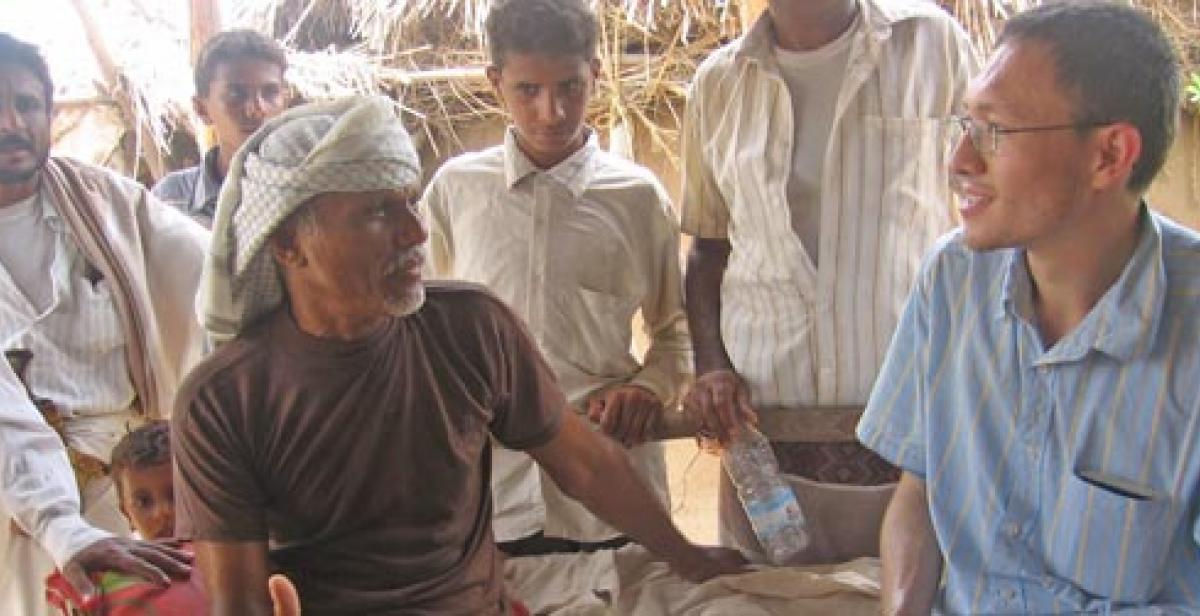The latest reports of violence and unrest in Yemen must not be allowed to divert attention from the humanitarian threat of hunger and food insecurity which faces the vast majority of ordinary Yemenis, warns Progressio.
Over half of Yemen’s 24 million people lack sufficient food and thousands of children are acutely malnourished. Progressio is deeply concerned by events unfolding in the country and the instability that these may cause. But renewed violent unrest at this time must not overshadow the food crisis currently being faced by millions of Yemenis.
"There is no one to support us"
"Life can be difficult here and we have many challenges. There is no one to support us," says Ali Sagheer Sadiq, a farmer in Al-Sukhna district. Limited awareness of the on-going humanitarian emergency is likely to continue where the minority involved in pockets of internal conflict are given greater attention than the millions going hungry.
An impressive $6.4 billion was recently pledged in aid by international donors. But sustained international action will be needed for some time if Yemen’s challenges are to be addressed.
Everyday life has become increasingly difficult for Yemenis as a result of the increasing costs of basic commodities such as food. "We are now more vulnerable than in the past," Ali tells us. Price rises have left millions unable to buy sufficient nutritious food. Chronic malnutrition amongst one of the world’s fastest growing populations, paired with mass unemployment, has led to high levels of poverty and an extremely frail economy.
Water shortages and malnutrition
The situation has been further exacerbated by reduced fuel availability, in part due to inflated prices. Yemenis rely on fuels such as diesel for pumping water from groundwater stores to drink and to irrigate crops. "The difficulty of obtaining diesel resulted in a temporary stop of our water supply," Ali explains, "that led to the deterioration of our crops."
Water issues and malnutrition go hand-in-hand in one of the world’s most arid countries. Without clean water and adequate sanitation, diarrhoea and other water related diseases can spread easily. For young children, diarrhoea combined with malnutrition can quickly become life-threatening.
Despite the daily struggles that Ali and many like him face, he remains optimistic that help will come. "Water for agriculture and water supply in general are our biggest challenges," he says. "We hope for more support in the coming future."
Yemen's people need long-term support
Yemen needs long-term support in order to ensure that the root causes of the current food crisis are addressed. Simple interventions such as improving structures for water management to ensure supply meets demand could help millions to cultivate their own crops and reduce reliance on imported goods that are susceptible to crippling price rises.
"I hope to expand my current farming projects and to see all my children get an education," says Ali, speaking of his vision for the future.
Lasting change will only become a viable prospect if the voices of ordinary Yemenis are heard above the rumble of conflict and their needs addressed. Humanitarian concerns must therefore become a top priority.
You can support long-term development work in Yemen by making a donation to Progressio.
Read more about the current situation and Progressio’s work in Yemen.
Photo: Ali Sagheer (left) speaking with Progressio Development Worker Derek Kim.



